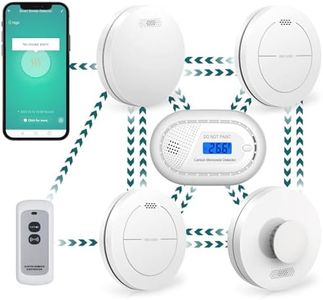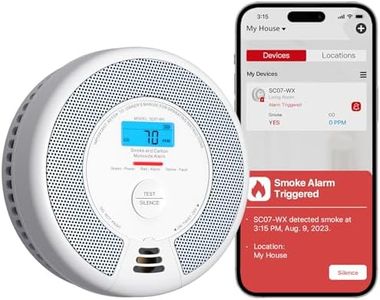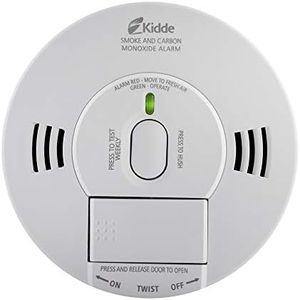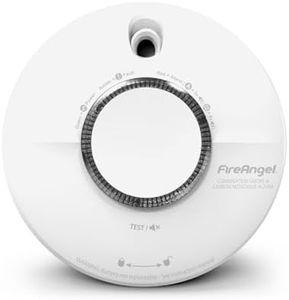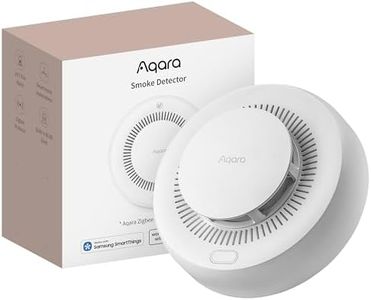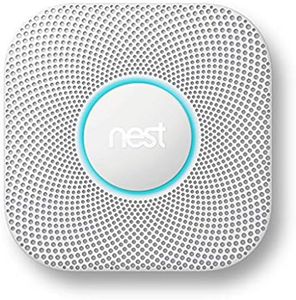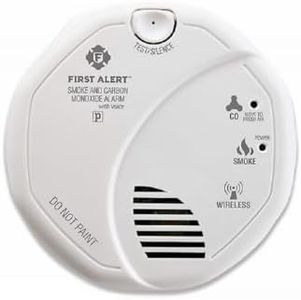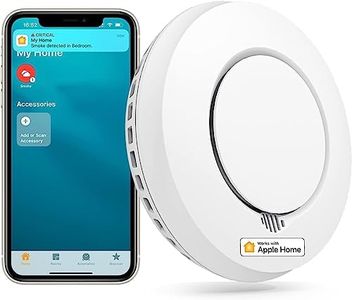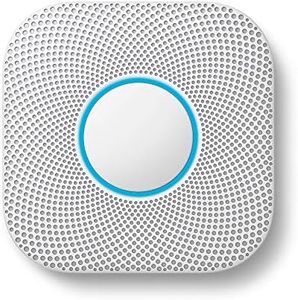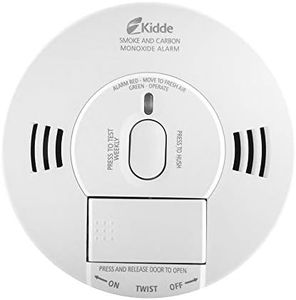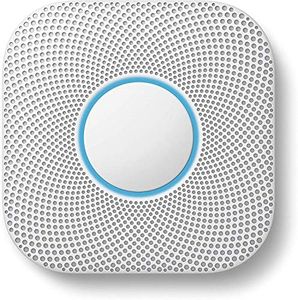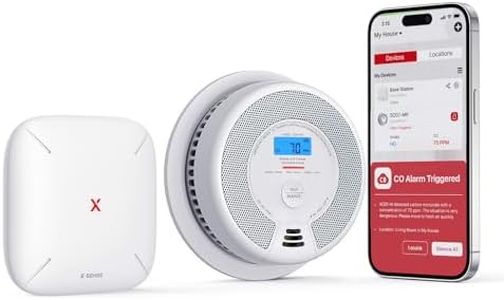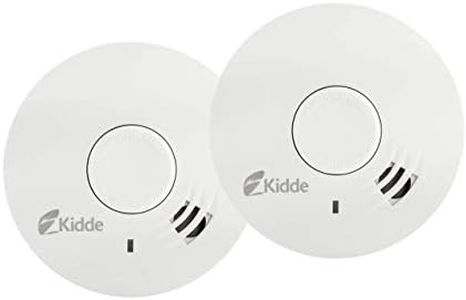We Use CookiesWe use cookies to enhance the security, performance,
functionality and for analytical and promotional activities. By continuing to browse this site you
are agreeing to our privacy policy
10 Best Smart Smoke Detector
From leading brands and best sellers available on the web.Recommended lists
Buying Guide for the Best Smart Smoke Detector
Choosing the right smart smoke detector is crucial for ensuring the safety of your home. Smart smoke detectors offer advanced features compared to traditional models, such as connectivity to your smartphone, integration with other smart home devices, and more precise detection capabilities. When selecting a smart smoke detector, consider the specific needs of your household, such as the size of your home, the presence of pets, or any specific health concerns. Understanding the key specifications will help you make an informed decision that best suits your lifestyle and safety requirements.Detection TechnologyDetection technology refers to the method the smoke detector uses to identify smoke or fire. Common types include photoelectric, ionization, and dual-sensor technology. Photoelectric detectors are generally better at detecting smoldering fires, while ionization detectors are more responsive to flaming fires. Dual-sensor models combine both technologies for comprehensive coverage. Consider your home environment; if you have a lot of electronics or flammable materials, a dual-sensor might be the best choice for enhanced safety.
ConnectivityConnectivity in smart smoke detectors allows them to link with your smartphone or other smart home devices. This feature is important because it enables real-time alerts and remote monitoring, ensuring you are informed of any issues even when you're not at home. Connectivity options can include Wi-Fi, Bluetooth, or integration with smart home systems like Alexa or Google Home. Choose a model that is compatible with your existing smart home setup or one that offers the connectivity features you find most useful for your lifestyle.
Battery LifeBattery life is a critical aspect of smart smoke detectors, as it determines how often you'll need to replace or recharge the batteries. Longer battery life means less maintenance and more reliable operation. Some models offer battery life of up to 10 years, while others may require annual changes. Consider how much maintenance you're willing to perform and whether you prefer a model with replaceable batteries or a built-in rechargeable option.
Smart FeaturesSmart features in smoke detectors can include voice alerts, self-testing capabilities, and integration with other smart devices. These features enhance the functionality and convenience of the detector. Voice alerts can provide specific information about the type of danger detected, while self-testing ensures the device is always operational. If you have a smart home ecosystem, look for detectors that can integrate seamlessly with your other devices for a more cohesive safety network.
Installation TypeInstallation type refers to how the smoke detector is mounted and powered. Options include hardwired, battery-operated, or plug-in models. Hardwired detectors are connected directly to your home's electrical system and often have battery backup, while battery-operated models are more flexible in terms of placement. Plug-in models are less common but offer easy installation. Consider your home's layout and whether you prefer a permanent installation or the flexibility to move the detector as needed.
